If You Want Someone to Learn from You, Respect First, Then Teach
I’ve been thinking a lot about schools lately. The debate about whether the Mayor of Milwaukee should take control of the Milwaukee Public School system has raged for a long time with passion on both sides of the issue.
Education is a building block of any society. Public education seeks to equip members of a society to understand how it works and be able to effectively participate within it.
There was a time when “society”—whether local, regional or national—had a similar view of life and agreed, for the most part, on what things kids needed to learn in order to become productive members. Leave it to Beaver, Father Knows Best, and Andy of Mayberry are examples of the television barometers that defined an accepted view of life once upon a time.
That time was a long time ago. Ask ten people today to define society and you can expect ten different answers. The role of education? Depends who you ask. While most people will still agree that education is a crucial building block of society, there is little agreement these days about what that means, who should be involved, what should be taught, who should pay for it, and what outcomes should be required.
If you peek inside a business, you will find the same changing landscape. Yes, most organizations will acknowledge that continuing education is important to their ongoing success. Workers/employees/associates need to understand what the business does, who it serves, how it makes money, and how it operates and adapts to be successful.
So we have learners. That’s most of us.
Then we have teachers. These are the people uniquely trained to understand society and know how things work, who have demonstrated their ability to inform others, and who make a living by helping others learn the ropes.
By definition, we have set up an uneven playing field. Learners lack; teachers fulfill. Learners need; teachers provide. Learners wait; teachers set the pace.
It occurred to me as I was thinking about all this that we are using outdated notions of education, where the student is a blank or under-developed slate and the teacher is a magician of sorts. How distorted a view this is!
When businesspeople (myself included) are brought in to assist in improving school performance, some are quick to say that the school professionals’ inferior knowledge or experience led to the under-performing situation. These same people would say that if only education professionals could learn what business professionals know, the situation could surely be turned around.
The abject disrespect of this approach is shameful. No businessperson can know—unless they have spent time in a school or classroom—what a principal or teacher encounters day to day.
The same is true, of course, for a teacher’s understanding of what a businessperson encounters in the course of doing business.
Here’s what shook out of my thinking. If we are to share our experiences to assist one another in doing better work, we must first respect one another. We all bring some level of experience and knowledge to the table. Tossing this aside is not only an act of disrespect, it is also a foolish act of disregard for the collective knowledge resource we can draw upon.
It is only after we have offered respect to our students that we can begin to teach them. Too many teachers want to take the podium as experts, preaching to the uninformed. While students may lack the knowledge of the expert, they do bring some accomplishment to the lecture. And they want it honored.
My colleague and mentor, University of Michigan professor Noel Tichy, has captured this dynamic and named it. The Virtuous Teaching Cycle acknowledges that both students and teachers bring information to the exchange and that both are learners as well as educators.
Bottom line: If you want someone to learn from you, respect them first, then teach.
Categories: Culture, Education